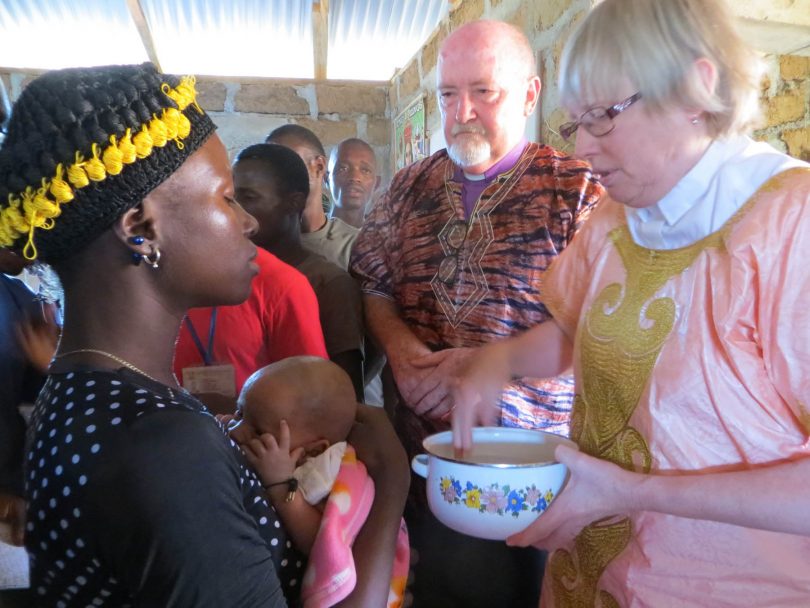First Sunday after the Epiphany
John the Baptist may not be a model for diet (locusts and honey) or dress (camel’s hair, Matthew 3:4), but we can learn from his pointing to Jesus: “One who is more powerful than I is coming” (Luke 3:16). One of our best-known Moravian hymns is “Jesus, Still Lead On.” Our church motto is “Our Lamb Has Conquered. Let Us Follow Him.”
John the Baptist looks to Jesus, and we look to Jesus, because of our faith that in Jesus we have a word from God, a message from the Creator of the universe, about the character of this God and God’s hopes and intentions for what he has created.
So what do we see in Jesus? We see a God who cares about all—especially those the world has neglected or forgotten. In the first-century culture in which Jesus lived, that meant women and lepers and Samaritans—but also villains like Zacchaeus and Matthew, who worked for the Roman oppressors.
For Moravians in the 1700s that meant West Indian slaves and Arctic natives of Labrador and Greenland. Today it may mean well-to-do residents who find that financial success and comfort do not satisfy the desires of their hearts, or the poor who find that our society tells them they do not matter.
God cares about all.
Jesus did not minister alone. He gathered others to work with him. And he continues to gather others to work with him. We call those who respond the Christian church.
Are we responding? Might God say of us, as God said of Jesus, “I am well pleased”?
Hermann Weinlick, retired pastor
Minneapolis, Minnesota

